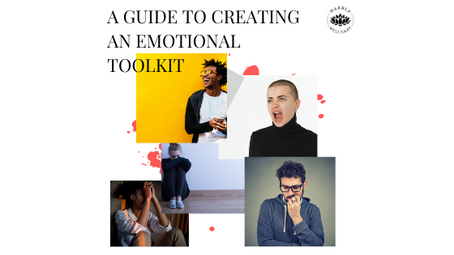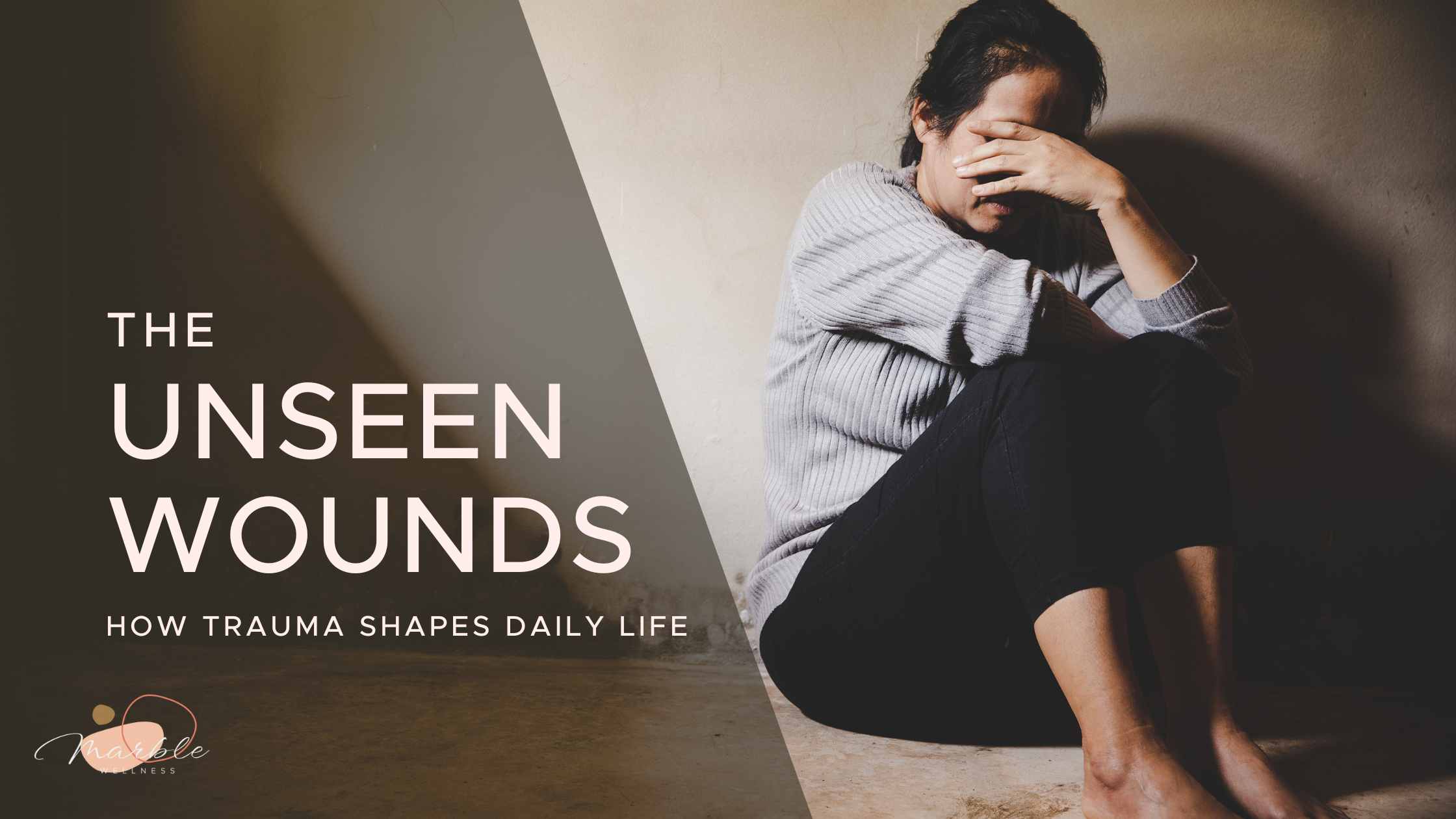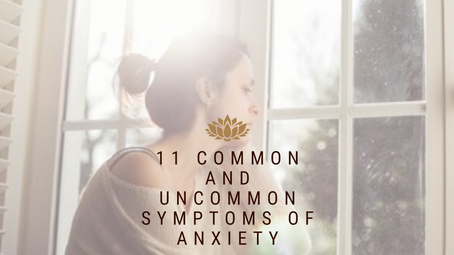If you’re someone who has ever had a headache, stomachache, twisted ankle, or any other physical experience that’s slightly to severely uncomfortable (so: everyone!), you probably know pretty precisely how you’d go about decreasing that discomfort, or maybe even how you’d make it go away altogether.
Even outside of aches and pains, physical sensations that we consider natural — tired; hungry; thirsty — are ones we know how to counter.
It’s built into our growing up. Learning how to survey our physical needs, how to assess our options for meeting them, and then taking responsibility to make it happen.
We know if Excedrin or Tylenol works best for us for a headache.
If we’re hungry but it was only an hour ago that we ate lunch, we know to either pull out a granola bar, pop in a piece of gum, or make a cup of tea — all depending on our relationship with the needs of our bodies and what we know about our hunger cues.
If we’re a little sleepy throughout the day, we increase caffeine, maybe do a round of jumping jacks, or decide to go to bed early that night and maybe even take off the next morning from our usual morning workout so we can get extra Z’s on both ends.
Yet, when it comes to emotional needs, many people struggle in an entirely different way. They don’t know how to name what they’re feeling. The emotion makes them so uncomfortable they shut down, completely ignore it, or maybe give into it in a way that heightens the intensity of the emotion and decreases their ability to deal with it in a productive way.
Which, isn’t necessarily your fault. We don’t teach emotional awareness the same way we do physical awareness (which we probably even don’t teach that well). But taking on education about your emotional life can provide you with key information you can use to have a healthier, less chaotic, and smoother daily experience.
The first step in this is gaining an emotional vocabulary. So many people can’t really pinpoint the difference in what they’re feeling if it’s more nuanced than sad-mad-glad. Are you frustrated or embarrassed? Are you bored or lonely? Are you confused or insecure?
Here’s an emotional wheel that may help you name what you’re feeling.

After you get an idea of the emotions you’re experiencing, check in with yourself about what triggers you have for that emotion. Can you reduce your exposure to those triggers? Can knowledge and awareness of them cushion the intensity of the emotion when it occurs?
But most importantly, when the emotion occurs, what can you put in place to “treat” it?
As you’re considering these answers, think about what happens in your body. That may help guide you with a coping activity.
Additionally, consider your personality traits. Are you someone who feels good after you talk through an issue with a close confidante or are you someone who needs 10-15 minutes to process something in a quiet environment? Perhaps it depends on which emotion comes up—that’s ok! Just like physical ailments, healing and treating emotional ailments often depends on that particular ailment + your own understanding of yourself.
There may also be times you need to repeat a treatment for an emotional issue. Similar to “ice on for 20 minutes, off for 20 minutes, repeat”, there may be emotions that require a few doses of treatment. Again, that’s normal and if that’s what works, then more power to you for that discovery!
See below for an example of emotions you might identify, questions that can help you determine some coping tools, as well as some suggested activities for those coping tools.
Emotions come and emotions go but some are very uncomfortable when they are making themselves known to us. Remember, you can still regain the upper hand and having a plan for those emotions can be a real difference maker! It may take some time to figure out what works best for you but this is an activity that is definitely worth trying on for size and has the potential to be a game-changer for you across the lifespan!
Here are some examples to creating an Emotional Toolkit from a St Louis, MO Therapist:
Emotions & Coping Tools “Pairing” Activity

Questions to consider for finding an appropriate coping tool for this emotion:
- Do I need short-term distraction so I can come back with new/better perspective?
- Do I need to energize myself to get over the emotion hurdle?
- Do I need to calm myself to gain better footing before moving forward?
- Do I need insight or conversation from/with others to help me with this?
- What activity can help me take the edge off of this emotion and then sit in it while still feeling safe?
Potential activities:
- Drawing, coloring, crocheting, gardening (why is it helpful? Helps the mind focus on the task at hand; usually brings heartbeat and pulse into rhythm)
- Breathing, meditating, stretching (helps us reconnect to our bodies if we are feeling out of control; can calm our physiology; can release intense emotions to be left with the practical situation at hand)
- Working out, dancing (even if it’s just a walk or a few jumping jacks) (can reenergize us, provides endorphins and some dopamine)
- Connecting with others (cuts against isolation; gives additional perspective)
- Showering, lighting our favorite candle, having a cup of tea (engaging in “cozy” activities returns to our brains the idea of safety; it’s the Scandinavian idea of “hygge” which invites us to turn into ourselves and our homes to find warmth and peace—which is usually accessible as long as we choose to engage in it)
Remember, there are no right or wrong answers! This is just a way to think about how we can cope with emotions as they arise. The coping tools may ebb and flow over time and they may overlap for many emotions. For other emotions, it may be really helpful to have an idea of an activity/tool that is *only* for that feeling.
Talk to you soon!
Start Therapy for Mental Health in St. Louis
If you live in St. Louis and are ready to improve your mental health, we are here to help.
Contact Us!

Additional Counseling Services at Marble Wellness in St. Louis, MO and Chicago, IL
Counseling services designed to help set you on a path of living a more fulfilled, calm, and happy life.
St. Louis
Our St. Louis team of therapists have a variety of training backgrounds and areas of expertise. We specialize in anxiety, depression, grief, chronic illness, therapy for men, couples, and maternal overwhelm. We can also help new moms with various postpartum concerns, moms in the thick of parenting, and moms with teens. We can also chat from wherever you are in the state with online therapy in Missouri and online therapy in Illinois. No matter where you are in your journey, we would love to support you.
Chicago
Our Chicago team of therapists offer a wide range of mental health services to help our clients through the different challenges and hurdles in their life. In addition to anxiety, depression, grief, therapy for men, and maternal overwhelm, we are specialized in professional burnout, therapy for breakups, and love partnering with working moms.



